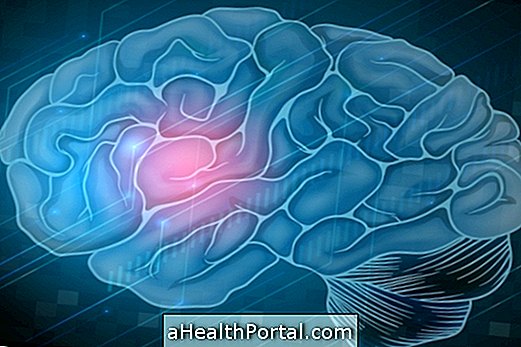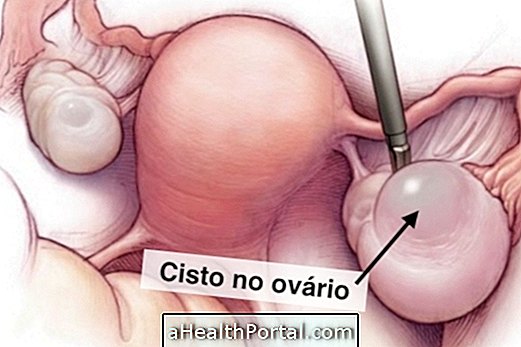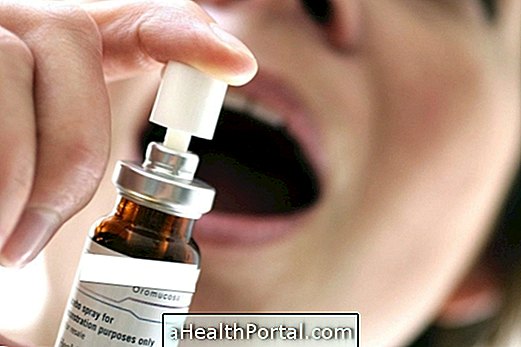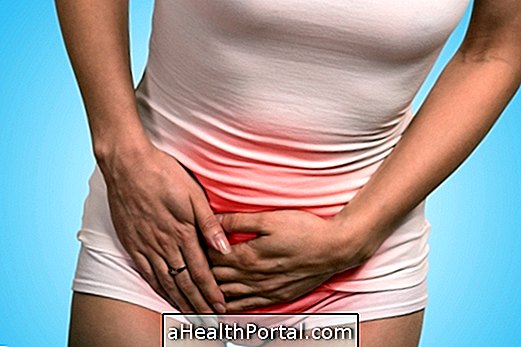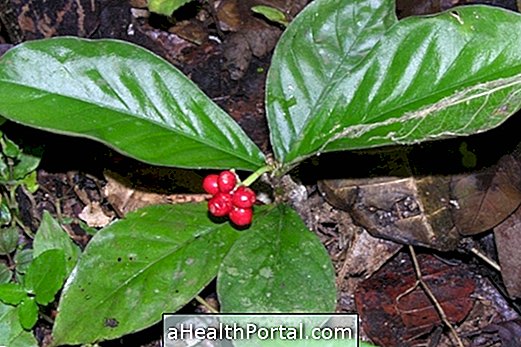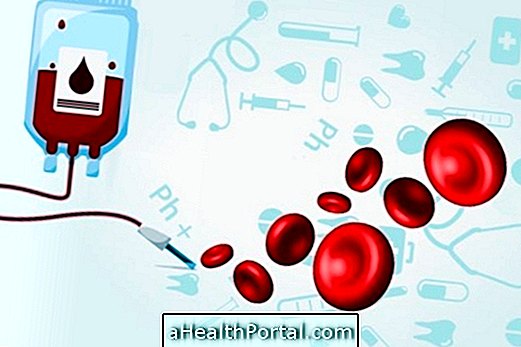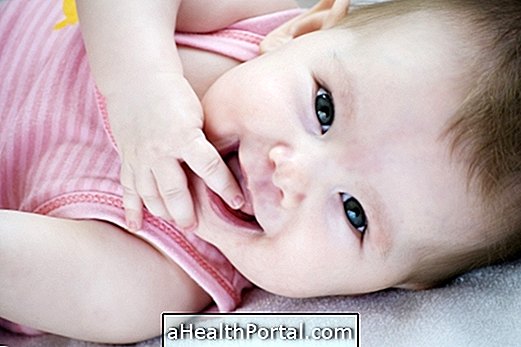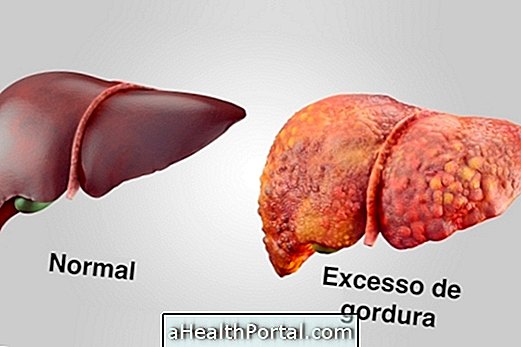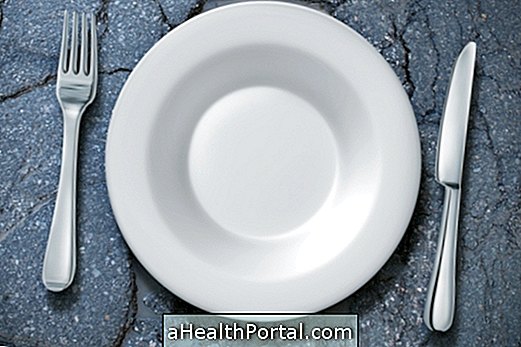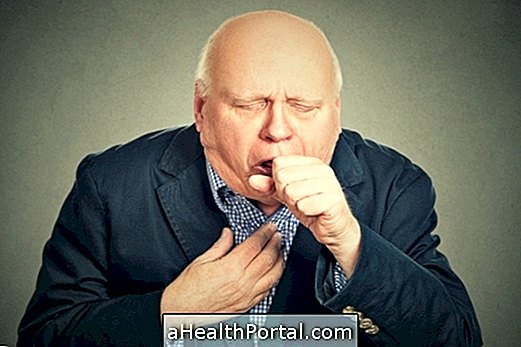Cancer in any part of the body can cause general symptoms like loss of more than 6 kg without dieting, being very tired or having some pain that does not go away. However, to arrive at the correct diagnosis it is necessary to make a series of examinations to discard other hypotheses.
Usually cancer is diagnosed when the person has very specific symptoms, which can appear from time to time, without explanation or as a consequence of a disease that has not been properly treated. How can it happen when a gastric ulcer develops into stomach cancer, for example. Here are the most common signs of stomach cancer.
Therefore, if you suspect you should go to the doctor to perform all the necessary tests, since diagnosing the cancer at an early stage increases the chances of cure.
1. To lose weight without dieting or exercising
Rapid weight loss of up to 10% of the initial weight in 1 month without dieting or intense exercise is a common symptom in people who are developing cancer, especially pancreatic, stomach or esophageal cancer, but they can also occur in other types. Learn about other diseases that can cause weight loss.
2. Heavy tiredness doing small tasks
It is relatively common for people who are developing cancer to have anemia or blood loss through feces, for example, leading to decreased red blood cells and reduced oxygen in the blood, tiring intense fatigue even when doing small tasks, such as climbing some or try to clean the bed, for example.
In addition, people with more advanced cases of cancer may also have fatigue early in the morning upon waking, even if they have slept through the night.
3. Pain that does not pass
Pain localized in a particular region is common in many types of cancer, such as cancer of the brain, bone, ovary, testis, or intestine. In most cases, this pain does not relieve with rest and is not caused by excessive exercise or other diseases such as arthritis or muscle injury. It is a persistent pain that does not give up with no alternative as cold or hot compresses, only with strong analgesics.
4. Fever that goes back and forth without taking medicine
Irregular fever can be a sign of cancer, such as leukemia or lymphoma, arising because the immune system is weakened. Generally, the fever appears for a few days and disappears without needing to take medicine, returning to appear unstable and without being linked to other symptoms such as the flu.
5. Stool changes
Having intestinal variations, such as very hard stools or diarrhea for more than 6 weeks, can be a sign of cancer, especially bowel cancer. In addition, in some cases there may also be major changes in the bowel pattern, such as having very hard stools for a few days and, on other days, diarrhea, in addition to swollen belly, nausea and vomiting.
This variation in stool pattern should be persistent and unrelated to food and other intestinal diseases such as irritable bowel.
6. Pain when urinating or dark urine
Patients who are developing cancer may have pain when urinating, urine with blood and urge to urinate more frequently, being more common signs in bladder or naprostate cancer. However, this symptom is also common in urinary tract infection and therefore a urine test should be performed to rule out this hypothesis.
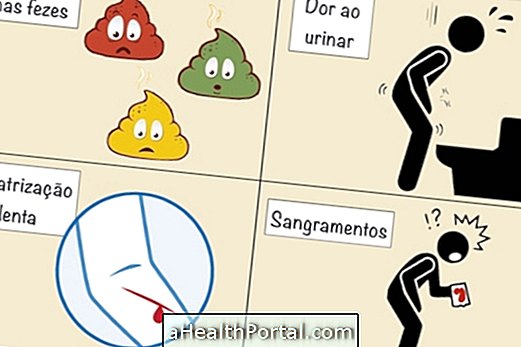
7. Time to heal wounds
The appearance of wounds in any region of the body, such as the mouth, skin or vagina, for example, that take more than 1 month to heal, may also indicate cancer at an early stage, as the immune system is weaker and platelets are responsible for helping to heal injuries. However, the delay in healing also occurs in diabetics, and may be a sign of uncontrolled diabetes.
8. Bleeding
Bleeding can also be a sign of cancer, which can happen early or late, and blood may appear in the cough, stool, urine or nipple, for example, depending on the region of the affected body.
Excessive vaginal bleeding, dark discharge, constant urge to urinate, fever, and menstrual cramps may indicate uterine cancer.
9. Skin blemishes
Cancer can cause changes in the skin, such as dark spots, yellowing of the skin, red or purple spots with spots, and itchy, itchy skin.
In addition, the color, shape, and size of a wart, sign, patch or freckle may appear, and may indicate skin cancer or other cancers.

10. Lumps and swelling of the anus
The appearance of nodules or lumps can arise in any region of the body, such as breast or testicles. In addition, swelling of the belly may occur due to enlargement of the liver, spleen and thymus, and swelling of the armpits located in the armpits, groin and neck, for example. This symptom may be present in several types of cancer.
11. Getting choked frequently
Cancer patients may experience difficulty swallowing, causing choking and persistent cough, especially when the patient is developing cancer of the esophagus, stomach or pharynx, for example.
Inflamed tongues in the neck and throat, enlarged abdomen, pallor, sweating, purple spots on the skin and pain in the bones may indicate Leukemia.
12. Hoarseness and cough for more than 3 weeks
Having persistent coughing, shortness of breath and hoarse voice may be a sign of lung, laryngeal or thyroid cancer, for example. Persistent dry cough accompanied by back pain, shortness of breath and intense tiredness may indicate lung cancer.
Other symptoms that may also indicate cancer in the woman are changes in breast size, redness, crusting or sores on the skin near the nipple, and discharge of fluid through the nipple, which may indicate breast cancer.
The presence of these symptoms does not always indicate the existence of a tumor, however, may suggest some alteration and therefore it is important to go to the doctor as soon as possible to assess the state of health, especially individuals with a family history of cancer .
What to do if you suspect cancer
In case of cancer suspicion, one should go to the doctor to perform blood tests such as PSA, CEA or CA 125, for example, and the values are usually increased.
In addition, your doctor may order an ultrasound or MRI scan to look at the organ and confirm the suspicion of cancer, and in some cases a CT scan or biopsy may be necessary. Here are the blood tests that detect cancer.
After knowing the type of cancer the person has, the doctor also indicates all the possibilities of treatments and even the cure rate.

Why pay attention to the signs and symptoms of cancer?
It is important to be alert to the signs and symptoms of cancer by turning to the doctor as soon as you feel some of the signs or symptoms because treatment is most effective when the cancer is diagnosed early and less likely to spread to other regions of the body. higher chances of cure.
In this way, no sign or symptom should be ignored, especially if it is present for more than 1 month.
How cancer occurs
Cancer can occur in any person, at any stage of life and is characterized by the disordered growth of some cells, which can compromise the functioning of some organ. This disordered growth may be related to complications such as aggravation of some disease but there are other related factors such as cigarette smoking, consumption of high fat foods and exposure to heavy metals.
How is the treatment done?
After the cancer is diagnosed the doctor should also indicate the tumor staging and what the treatment options are because they may vary depending on the person's age, tumor type and staging. Options include:
Surgery
For removal of any tumor, part of it or even other tissues that may be affected by it. This type of treatment for cancer is indicated for tumors such as colon cancer, breast cancer and the mouth, because they are easier to operate.
Radiotherapy
It consists of exposure to ionizing radiation that may decrease tumor size, and may be indicated before or after surgery.
The patient during treatment feels nothing, but after the radiation therapy session can have side effects such as nausea, vomiting, diarrhea, red or sensitive skin, which last only a few days. Rest is important in patient recovery after radiotherapy session.

Chemotherapy
Characterized by taking a cocktail of medications, in the form of tablets or injections, which are given at the hospital or treatment center.
Chemotherapy may consist of only one medicine or it may be an association of medicines and be taken as tablets or injectables. The side effects of chemotherapy are several such as anemia, hair loss, nausea, vomiting, diarrhea, mouth sores or changes in fertility. Chemotherapy, in the long run, can also cause leukemia, a cancer of the blood, although it is rare. See more on what to do to lessen the side effects of chemotherapy.
Immunotherapy
They are medicines that make the body itself is able to recognize the cancer cells, fighting them more effectively. Most immunotherapy treatments are injectable and work throughout the body, and can cause symptoms of allergic reactions such as rash or itching, fever, headache, muscle pain or nausea.
Hormone therapy
They are tablets that serve to fight against the hormones that may be related to the growth of the tumor. The side effects of hormone therapy depend on the medicine used or surgery, but may include impotence, menstrual changes, infertility, breast tenderness, nausea, headache or vomiting.
Bone marrow transplant
It can be used in cases of cancer cells in the blood, such as leukemia, and aims to replace the diseased bone marrow by normal bone marrow cells. Before transplantation, the individual receives treatment with high doses of chemotherapy or radiotherapy to destroy cancer cells or normal marrow cells, and then receive the healthy bone marrow transplant from another compatible person. The side effects of bone marrow transplantation can be infections, anemia or rejection of healthy bone marrow.
Phosphoethanolamine
Phosphoethanolamine is a test substance that appears to be effective in fighting cancer, increasing its chances of healing. This substance can identify and eliminate cancer cells but further studies are needed to prove its effectiveness.
These treatments should be guided by the oncologist and can be used alone or combined with each other to decrease the risk of metastasis, which occurs when the tumor spreads to other regions of the body and also to increase the chances of cure.



